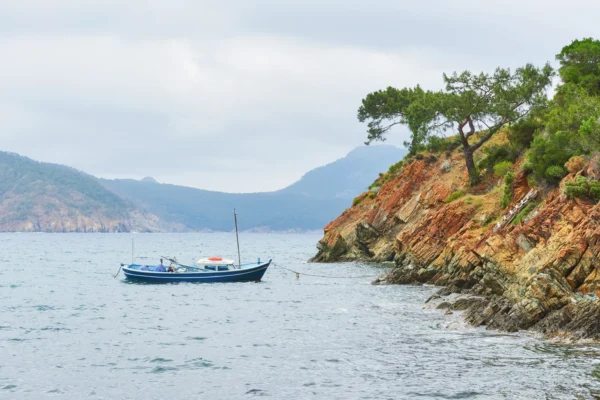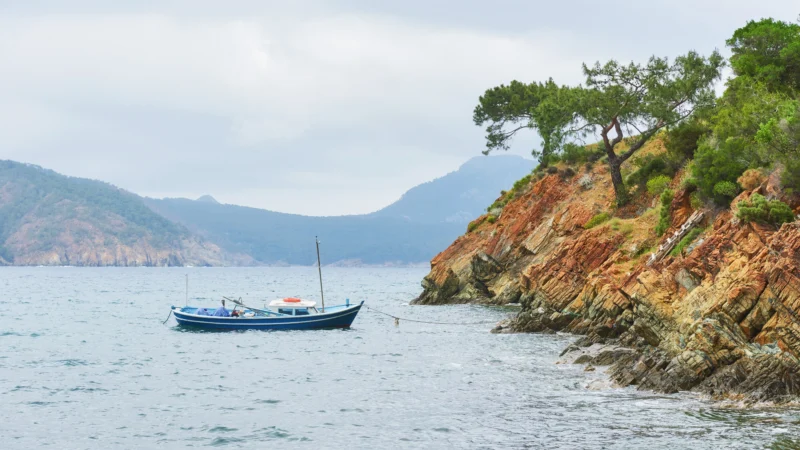Travel Without Trashing the Planet
Love exploring new places? You’re not alone.
Over 1.4 billion people travel internationally each year. That’s a lot of suitcases, hotel stays, and airplane meals.
But here’s the problem. All that travel creates massive amounts of waste. Single-use plastics. Food packaging. Disposable toiletries. Souvenirs that end up in landfills.
The average traveler produces about 4.5 pounds of waste per day. Multiply that by millions of tourists, and we’ve got a serious environmental problem.
Good news though. You can still see the world without destroying it.
Zero-waste travel isn’t about being perfect. It’s about making better choices. Small changes that add up to big differences.
Why Zero-Waste Travel Matters
Tourism is one of the world’s largest industries. It’s also one of the most wasteful.
The Shocking Numbers
Here’s what traditional travel looks like:
- Airlines throw away 6.1 million tons of cabin waste annually
- Cruise ships dump 1 billion gallons of sewage into oceans yearly
- Hotels discard 289,000 tons of food waste each year
- Single-use plastic bottles from tourism could circle Earth 4 times
That’s just the tip of the iceberg.
Environmental Impact Beyond Waste
Travel affects the planet in many ways:
Carbon Emissions
- Air travel accounts for 2.5% of global CO2 emissions
- One round-trip flight can equal your entire year’s carbon footprint
- Tourism transportation creates over 1 billion tons of CO2 annually
Local Ecosystem Damage
- Overtourism destroys natural habitats
- Marine life suffers from cruise ship pollution
- Popular destinations struggle with waste management
Resource Depletion
- Hotels use massive amounts of water and energy
- Tourist areas often lack proper recycling facilities
- Local communities bear the environmental costs
The Good News
You have the power to change this. Every sustainable choice you make matters.
When travelers demand eco-friendly options, the industry responds. Hotels go green. Airlines reduce waste. Tour companies adopt sustainable practices.
Your wallet votes for the kind of travel industry you want to see.
Pre-Trip Planning for Zero-Waste Success
Sustainable travel starts before you leave home. Good planning makes all the difference.
Research Your Destination
Not all places are equally eco-friendly. Some destinations make sustainable travel easier:
Look for:
- Strong recycling programs
- Public transportation systems
- Tap water that’s safe to drink
- Local markets instead of chain stores
- Environmental protection policies
Avoid or prepare for:
- Places with poor waste management
- Destinations without recycling
- Areas where plastic bottles are necessary
- Locations with limited sustainable options
Choose Eco-Friendly Accommodations
Your hotel choice impacts your waste footprint significantly.
Green Hotels to Look For:
- LEED certified properties
- Hotels with comprehensive recycling programs
- Places that eliminate single-use plastics
- Accommodations with refillable toiletry dispensers
- Properties using renewable energy
Red Flags:
- Daily towel and sheet changes (wasteful)
- Individual plastic-wrapped toiletries
- No recycling bins in rooms
- Excessive packaging on amenities
- Plastic water bottles in every room
Book Direct and Digital
Skip the paper confirmations and boarding passes:
- Use mobile boarding passes
- Download hotel apps for digital check-in
- Save confirmations on your phone
- Email receipts instead of printed ones
- Use digital maps instead of paper guides
Sustainable Packing Strategies
What you pack determines how much waste you’ll create while traveling.
The Zero-Waste Travel Kit
These essentials will eliminate most disposable items:
Water and Beverages
- Collapsible water bottle or large reusable bottle
- Water purification tablets for questionable tap water
- Reusable coffee cup with lid
- Metal or bamboo straws
Food and Snacks
- Reusable food containers in various sizes
- Cloth produce bags for market shopping
- Bamboo or metal utensils set
- Napkin alternatives (cloth napkins or bandanas)
Personal Care
- Solid shampoo and conditioner bars
- Package-free soap bars
- Bamboo toothbrush
- Toothpaste tablets or powder
- Reusable razor with replacement blades
- Menstrual cup or reusable pads for women
Miscellaneous
- Reusable shopping bags (lightweight and foldable)
- Rechargeable batteries and portable charger
- Digital camera instead of disposable ones
- Refillable pen
- Cloth tissues instead of paper
Packing Light Principles
Less stuff means less waste:
- Choose versatile clothing that mixes and matches
- Bring layers instead of bulky items
- Limit yourself to one carry-on if possible
- Avoid packing “just in case” items
- Choose quality items that won’t break and need replacing
What NOT to Pack
Leave these wasteful items at home:
- Single-use toiletries from hotels
- Disposable cameras
- Plastic bags for laundry (use pillowcases instead)
- Multiple books (use e-readers or library exchanges)
- Excessive electronics and chargers
Transportation: Getting There Sustainably
How you travel makes a huge difference in your environmental impact.
Flight Strategies
Flying creates the most carbon emissions, but these tips help:
Choose Better Flights
- Direct flights are more efficient than connecting ones
- Newer planes use less fuel
- Economy class has a smaller per-person footprint than first class
- Pack light to reduce plane weight
Offset Your Emissions
- Buy legitimate carbon offsets
- Choose programs that plant trees or fund renewable energy
- Calculate your flight’s exact carbon footprint
- Consider voluntary airline offset programs
Ground Transportation
Once you arrive, choose sustainable transport:
Best Options:
- Walking (zero emissions, great exercise)
- Cycling (many cities have bike sharing programs)
- Public transportation (buses, trains, metros)
- Electric or hybrid car rentals
- Carpooling or ride-sharing
Avoid When Possible:
- Individual taxi rides for short distances
- Rental cars for city exploration
- Private transfers when public options exist
- Unnecessary domestic flights
Slow Travel Benefits
Stay longer in fewer places:
- Reduces transportation emissions
- Allows deeper local experiences
- Costs less money overall
- Creates less trip-planning waste
- Reduces packing and unpacking stress
Zero-Waste Eating While Traveling
Food is one of the biggest sources of travel waste. Here’s how to eat sustainably on the road.
Choosing Restaurants Wisely
Look for:
- Farm-to-table restaurants
- Places that serve local, seasonal food
- Restaurants with minimal packaging
- Establishments that compost food waste
- Local family-owned businesses
Avoid:
- Fast food chains with excessive packaging
- All-you-can-eat buffets (high food waste)
- Restaurants that pre-package everything
- Places with lots of single-use items
Market Shopping and Self-Catering
Local markets are zero-waste goldmines:
- Bring your own bags and containers
- Buy only what you can eat
- Choose loose produce over packaged items
- Support local farmers and vendors
- Experience authentic local food culture
Eating Out Sustainably
Make restaurants work with your zero-waste goals:
- Decline single-use items like plastic utensils
- Ask for no straws or bring your own
- Take leftovers in your own container
- Share dishes to reduce food waste
- Choose tap water over bottled when safe
Snack Smart
Avoid packaged snacks by:
- Buying bulk items like nuts and dried fruit
- Preparing snacks in your accommodation
- Choosing whole fruits over processed foods
- Making your own trail mix
- Visiting local bakeries with your own containers
Accommodation: Staying Green
Where you sleep affects your waste footprint significantly.
Hotel Strategies
Make any hotel stay more sustainable:
Upon Arrival:
- Decline daily housekeeping (saves water and chemicals)
- Use towels and sheets multiple times
- Turn off air conditioning when you leave
- Use refillable toiletry dispensers when available
Daily Habits:
- Take shorter showers
- Turn off lights and electronics
- Use hotel recycling programs
- Avoid single-use hotel amenities
- Bring your own toiletries
Alternative Accommodations
Consider more sustainable options:
Vacation Rentals:
- Kitchen access for cooking reduces packaging waste
- Washing machines mean you can pack less
- More space to sort and store recyclables
- Often more energy-efficient than hotels
Eco-Lodges:
- Built with sustainability in mind
- Often have composting and recycling programs
- Use renewable energy sources
- Support local communities
Hostels:
- Shared resources reduce individual waste
- Often have kitchens for cooking
- Usually more environmentally conscious
- Great for meeting like-minded travelers
Camping and Outdoor Stays
The ultimate low-waste accommodation:
- Pack out everything you pack in
- Use biodegradable soaps
- Minimize campfire waste
- Respect Leave No Trace principles
- Choose established campsites to minimize impact
Activities and Sightseeing Sustainably
What you do at your destination matters as much as where you stay.
Choosing Responsible Tours
Green Tour Operators:
- Small group sizes
- Local guides and businesses
- Environmental education focus
- No animal exploitation
- Positive community impact
Avoid:
- Mass tourism attractions
- Tours that harm wildlife
- Activities with excessive waste
- Operators with poor environmental records
Self-Guided Exploration
Explore independently to reduce waste:
- Use public transportation
- Walk or bike when possible
- Bring your own water and snacks
- Use digital maps and guides
- Choose outdoor activities over shopping
Supporting Local Communities
Make your tourism dollars count:
- Buy from local artisans and markets
- Eat at locally-owned restaurants
- Use local guides and services
- Choose activities that benefit communities
- Learn about local environmental challenges
Managing Waste on the Road
Even with the best planning, you’ll create some waste. Here’s how to handle it responsibly.
Understanding Local Systems
Research waste management before you arrive:
- How does recycling work locally?
- What items are accepted?
- Where are recycling centers located?
- Are there composting programs?
- What’s the proper waste separation?
Carrying Waste When Necessary
Sometimes you’ll need to hold onto waste:
- Carry a small bag for recyclables
- Store food waste for composting when possible
- Keep batteries and electronics for proper disposal
- Hold onto plastic waste until you find recycling
Creative Waste Solutions
Think outside the box:
- Use food containers as storage for other items
- Repurpose packaging as packing material
- Give useful items to other travelers
- Donate clothes instead of throwing them away
- Find local upcycling or repair shops
Technology and Zero-Waste Travel
Use technology to reduce your environmental impact.
Essential Apps
Transportation:
- Citymapper for public transit
- BlaBlaCar for ride sharing
- Moovit for bus and train schedules
Food and Shopping:
- HappyCow for vegan/vegetarian restaurants
- Too Good To Go for reducing food waste
- Local market apps
Accommodation:
- Green hotel booking platforms
- Home sharing apps with eco-friendly filters
General:
- Offline maps to reduce data usage
- Translation apps to avoid printed guides
- Carbon footprint calculators
Digital Minimalism
Reduce tech waste while traveling:
- Bring fewer devices
- Use multi-purpose items (phone as camera, alarm, map)
- Share chargers with travel companions
- Choose quality tech that won’t break
- Avoid buying tech abroad unless necessary
Shopping and Souvenirs Sustainably
Bringing home memories doesn’t have to create waste.
Rethinking Souvenirs
Sustainable Options:
- Local food items you can consume
- Handmade crafts from local artisans
- Digital photos and experiences
- Small, useful items made locally
- Items that support local causes
Avoid:
- Mass-produced items made overseas
- Plastic trinkets that will break
- Items wrapped in excessive packaging
- Things you don’t actually need
- Products that exploit local resources
Shopping Strategies
Make purchases count:
- Quality over quantity
- Support local businesses
- Choose items with minimal packaging
- Bring your own bags
- Buy only what you’ll actually use
Giving Back
Consider purchases that help:
- Buy from social enterprises
- Support environmental causes
- Purchase items that fund community projects
- Choose products made by marginalized groups
Dealing with Challenges
Zero-waste travel isn’t always easy. Here’s how to handle common obstacles.
Language Barriers
Communicating your needs:
- Learn key phrases about refusing plastic
- Use translation apps
- Point to what you want instead of taking packaging
- Bring cards explaining your needs in local language
- Find other zero-waste travelers for tips
Limited Infrastructure
When recycling isn’t available:
- Reduce consumption even more
- Carry waste to places with better facilities
- Choose activities that create less waste
- Stay longer to make transportation emissions worthwhile
- Focus on experiences over things
Social Pressure
Dealing with judgment or confusion:
- Explain your reasons calmly
- Lead by example
- Find like-minded travel companions
- Join zero-waste travel communities online
- Remember that every effort counts
Higher Costs
Sustainable options sometimes cost more:
- Calculate long-term savings
- Consider the environmental cost of cheaper options
- Look for free sustainable activities
- Cook your own meals more often
- Remember that experiences matter more than stuff
Building Long-Term Sustainable Travel Habits
Make zero-waste travel a permanent part of your life.
Start Small
Begin with easy changes:
- Bring a reusable water bottle on every trip
- Pack one set of reusable utensils
- Choose one eco-friendly accommodation
- Try one new sustainable practice per trip
Track Your Progress
Monitor your improvements:
- Take photos of your waste at the end of each day
- Calculate your carbon footprint before and after changes
- Keep a travel sustainability journal
- Set specific goals for each trip
Share Your Journey
Inspire others:
- Post about your sustainable choices on social media
- Write reviews highlighting eco-friendly businesses
- Recommend zero-waste practices to fellow travelers
- Share your challenges and successes
Continue Learning
Stay informed about sustainable travel:
- Follow eco-travel blogs and influencers
- Join online communities
- Read about new sustainable innovations
- Attend workshops or talks about responsible tourism
The Future of Sustainable Travel
The travel industry is changing rapidly as more people demand sustainable options.
Industry Trends
Airlines:
- Eliminating single-use plastics
- Offering carbon offset programs
- Developing more efficient planes
- Providing digital services
Hotels:
- Installing bulk toiletry dispensers
- Implementing comprehensive recycling
- Using renewable energy
- Offering plant-based menu options
Tour Operators:
- Focusing on small group experiences
- Partnering with local communities
- Emphasizing environmental education
- Avoiding activities that harm ecosystems
Your Role in Change
Consumer demand drives industry change:
- Choose businesses with sustainable practices
- Leave reviews mentioning environmental factors
- Ask hotels and airlines about their sustainability efforts
- Support legislation that promotes eco-tourism
Regional Considerations
Different parts of the world have different challenges and opportunities for zero-waste travel.
Developed Countries
Advantages:
- Better recycling infrastructure
- More eco-friendly accommodation options
- Safe tap water in most places
- Well-developed public transportation
Challenges:
- More consumer culture and packaging
- Higher carbon footprint from affluent lifestyles
- More processed food options
Developing Countries
Advantages:
- Less packaging in traditional markets
- More walking and cycling culture
- Fresh, local food readily available
- Strong reuse and repair culture
Challenges:
- Limited recycling facilities
- Unsafe tap water requiring bottled water
- Less awareness of environmental issues
- Limited sustainable accommodation options
Tropical Destinations
Special Considerations:
- Reef-safe sunscreen is essential
- Mosquito protection without harmful chemicals
- Respect for marine ecosystems
- Water conservation in drought-prone areas
Creating Your Zero-Waste Travel Action Plan
Ready to start your sustainable travel journey? Here’s how to begin:
Phase 1: Assessment (Before Your Next Trip)
- Calculate your current travel footprint
- Inventory your existing travel gear
- Research your destination’s environmental policies
- Identify the biggest waste sources in your travel style
Phase 2: Preparation (2-4 Weeks Before Travel)
- Invest in key reusable travel items
- Find eco-friendly accommodations
- Plan sustainable transportation options
- Download helpful apps and offline resources
Phase 3: Implementation (During Travel)
- Use your reusable items consistently
- Track your waste and environmental impact
- Try new sustainable practices
- Document what works and what doesn’t
Phase 4: Reflection (After Travel)
- Evaluate your success and challenges
- Calculate your reduced environmental impact
- Plan improvements for next time
- Share your experiences with others
Conclusion: Your Journey Toward Sustainable Adventures
Zero-waste travel isn’t about perfection. It’s about progress.
Every plastic bottle you refuse makes a difference. Every local business you support helps communities. Every sustainable choice you make sends a message to the travel industry.
The world is full of incredible places waiting to be explored. But those places will only stay incredible if we explore them responsibly.
You don’t have to choose between seeing the world and protecting it. With thoughtful planning and conscious choices, you can do both.
The planet needs travelers who care. Communities need tourists who respect their environment. Future generations need us to travel more sustainably today.
Your next adventure can be the start of a more sustainable relationship with travel. Every journey is an opportunity to make better choices.
The world is waiting. Let’s explore it without destroying it.
Start Your Zero-Waste Travel Journey Today
Ready to make your next trip more sustainable? Take these action steps:
- Audit your current travel habits – Look at photos from your last trip and identify waste sources
- Invest in three key items – Start with a reusable water bottle, utensils set, and shopping bag
- Research your next destination – Find eco-friendly accommodations and sustainable activity options
- Plan one zero-waste meal – Research local markets and plan to cook or eat locally
- Set a specific goal – Choose one measurable target like “use zero single-use plastics for food”
- Track your impact – Take daily photos of your waste to stay accountable
- Share your journey – Inspire others by posting about your sustainable travel choices
Remember: every small step toward zero-waste travel makes a difference. Start today, and help preserve the beautiful places you love to visit for future generations.








